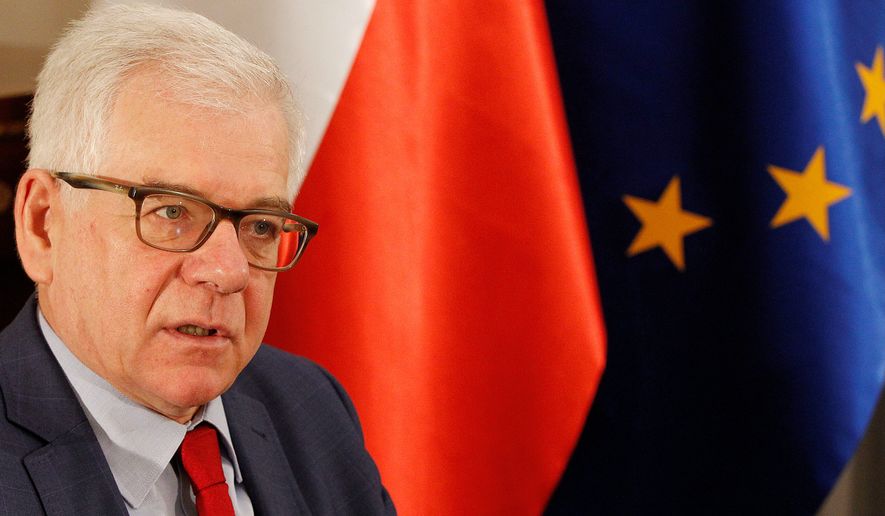Polish President Andrzej Duda’s desire to build a permanent U.S. Army base in his country to deter Russia will be front and center when he meets with President Trump at the White House this week.
The conservative euroskeptic, who last week dismissed the European Union as an “imaginary community,” also is scheduled to gather with senators and throw a party to celebrate the 100th anniversary of President Woodrow Wilson calling for Poland’s independence in his famous “Fourteen Points” address to Congress.
Mr. Trump made Poland his first destination during his tour of Europe last year. The move impressed the country’s right-wing government, which attaches great importance to the relationship.
Mr. Duda’s first trip to the White House is planned for Tuesday.
For Poland, a member of the EU and NATO, topping the list of discussion topics will be its need for more military support, a constant given its proximity to Russia.
Long critical of Moscow’s foreign policy, Warsaw has been especially worried since Russia annexed Ukraine’s Crimea region in March 2014. Polish officials also have been on high alert for Kremlin-sponsored attempts to influence Polish public opinion through cyberattacks and hacking.
While Russian aggressiveness has spurred NATO members to increase their activity along the alliance’s eastern flank, no permanent military deployment has been agreed upon. Instead, the alliance has opted for a permanent, rotating presence of personnel with troops reportedly engaging in Cold War-era exercises, angering Moscow in the process.
Mr. Duda scored a surprise win in the 2015 election over the incumbent centrist Bronislaw Komorowski in the closest presidential contest in Poland’s history.
Defense has been a policy priority, and his senior adviser, Krzysztof Szczerski, said Tuesday’s meeting with Mr. Trump will cover trade ties and partnership between the two NATO allies but strengthening the U.S. military presence in the region will be a main focus, The Associated Press reported.
The stakes were raised last month during Poland’s Armed Forces Day parade in Warsaw, which commemorates the defeat of Soviet forces in 1920. Local media reported that Mr. Duda said his government would pay $2 billion to get a permanent U.S. military presence to “deter every potential aggressor.” Polish Defense Minister Mariusz Blaszczak also has held talks on the issue with U.S. officials.
Washington has yet to publicly respond to the request, but Mr. Trump is expected to be a willing listener, having long expressed doubts about NATO’s ability to fund itself without Washington propping up the alliance.
At July’s NATO summit in Brussels, Mr. Trump engaged in bare-knuckle diplomacy, praising the alliance as a “fine-tuned machine” but threatening to withdraw the U.S. from the pact unless other member countries significantly boost their defense budgets.
Poland already spends 2 percent of its GDP on defense, a figure Mr. Trump supports. Mr. Duda recently said Poland will aim for 2.5 percent by 2024.
Similar to Mr. Trump, Mr. Duda has expressed disregard for multilateral institutions on the continent, including the EU, which he dismissed last week as an “imaginary community from which we don’t gain much.”
Although Poland has been seen as a success story of the EU’s eastern expansion, the county has faced unprecedented disciplinary measures from Brussels over a series of judicial reforms designed to modernize its courts, which are stuck in the country’s communist past.
Mr. Duda, his supporters say, has the ability to act like Mr. Trump and shake things up. Critics, meanwhile, say he acts rashly.
• Dan Boylan can be reached at dboylan@washingtontimes.com.




Please read our comment policy before commenting.